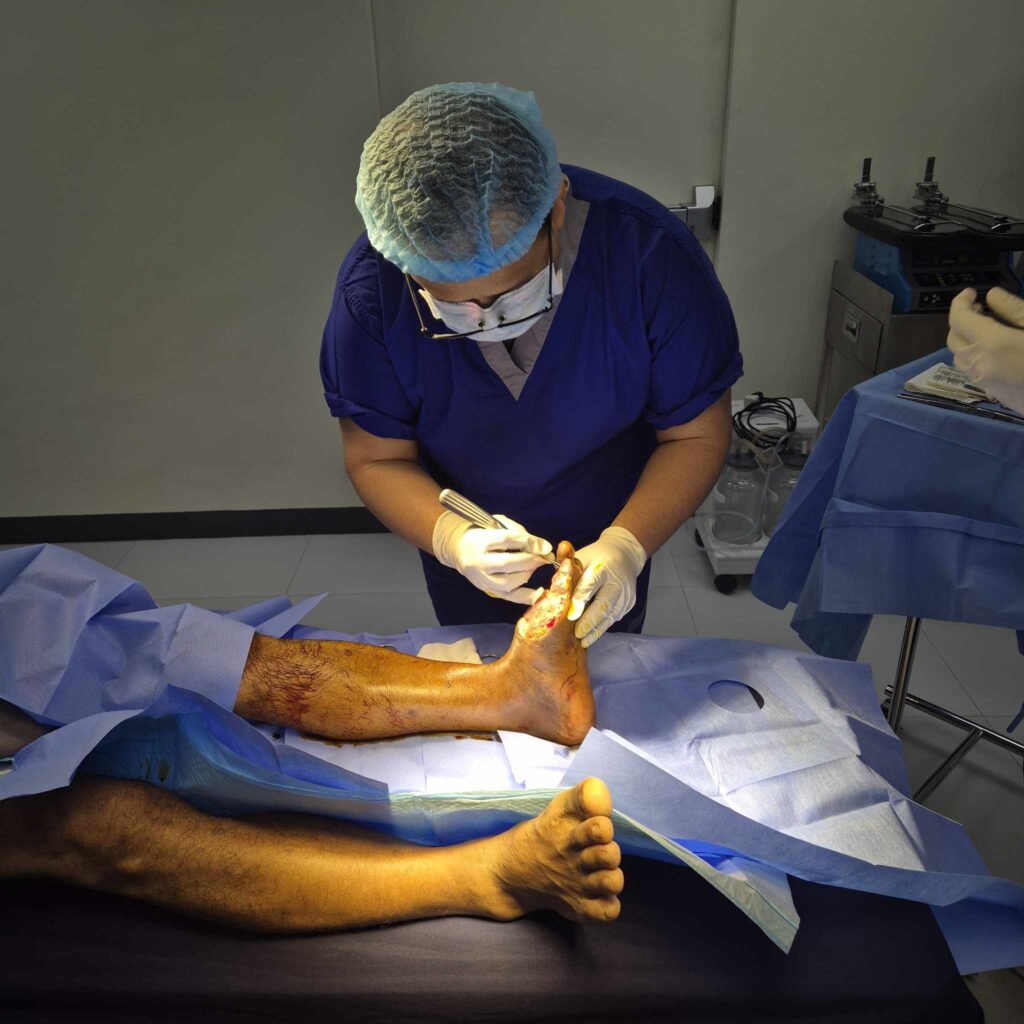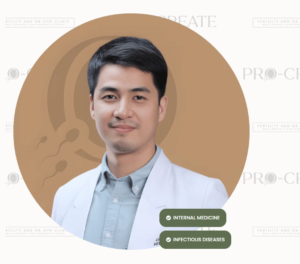Understanding Debridement and Its Importance in Wound Care
Wound healing is a complex process that can be delayed when dead or infected tissue is present. Debridement is a medical procedure designed to remove damaged or necrotic tissue, allowing the wound to heal properly. This treatment is crucial because dead tissue not only slows down healing but can also harbor harmful bacteria that increase the risk of infection. Without proper intervention, wounds can become chronic, painful, and even life-threatening in severe cases. Debridement works by preparing the wound bed for new, healthy tissue to grow, which significantly improves healing outcomes. Patients who receive timely debridement often experience shorter recovery times and fewer complications. In places like Quezon City, access to professional debridement services provides residents with the medical support needed for effective wound care.
Different Methods of Debridement Commonly Used in Medical Practice
There are several types of debridement, and each method is chosen based on the patient’s specific condition. Sharp or surgical debridement involves using medical instruments to quickly remove necrotic tissue, making it one of the most efficient methods. Mechanical debridement, on the other hand, uses techniques such as wet-to-dry dressings or irrigation to clear out dead tissue. Autolytic debridement is a gentler process that relies on the body’s own enzymes and moisture to break down dead tissue, often recommended for less severe wounds. Enzymatic debridement makes use of topical agents that target and dissolve unhealthy tissue without damaging healthy cells. Each method carries unique benefits, and a healthcare provider decides which approach is best based on the wound’s severity, location, and the patient’s overall health. By offering these methods, debridement services in Quezon City ensure that patients receive customized care for their healing journey.
Why Accessing Debridement Services in Quezon City Matters
Living in a highly urbanized area like Quezon City provides residents with access to many healthcare facilities, yet not all specialize in wound care. Debridement services offered by trained professionals are essential because improper wound management can lead to severe infections or even systemic complications. The increasing prevalence of chronic conditions such as diabetes has also heightened the demand for specialized wound care, as diabetic ulcers often require careful and repeated debridement. Clinics and hospitals in Quezon City are equipped with modern facilities and skilled staff who can perform both minor and advanced procedures. Accessibility to these services also means that patients no longer need to travel far to receive quality wound management. For many families, having reliable debridement services close to home offers peace of mind, knowing that proper care is within reach. This level of healthcare accessibility plays a crucial role in ensuring better long-term outcomes for patients.
Benefits of Choosing Professional Debridement Services
When a patient chooses professional debridement services, they benefit from both safety and efficiency. One of the main advantages is the reduced risk of infection, as the removal of necrotic tissue eliminates an environment where bacteria thrive. Professional care also supports faster healing, which helps patients return to daily life more quickly. Another benefit is that treatment is personalized, with healthcare providers carefully selecting the right method of debridement depending on the wound’s condition. Pain management is also a key component, ensuring that patients are as comfortable as possible during the procedure. Additionally, follow-up care and monitoring help prevent complications and encourage proper wound closure. By receiving professional debridement in Quezon City, patients can rely on medical teams who are experienced in handling different wound types, from minor injuries to more complex conditions. This expertise ensures that every step of the healing process is managed effectively.
What to Expect During a Debridement Procedure
For patients who have never undergone debridement, understanding the process can ease anxiety. The first step involves a thorough assessment of the wound by a healthcare provider, who evaluates its depth, severity, and risk factors. Once a method is chosen, the wound area is carefully prepared, often with pain relief options to ensure patient comfort. The actual removal of necrotic tissue may be performed using instruments, dressings, or topical agents depending on the chosen technique. After the procedure, the wound is dressed and protected to promote healing and prevent infection. Patients are typically given aftercare instructions that may include regular dressing changes, medication, or follow-up visits. Continuous monitoring is essential to track progress and make adjustments if necessary. By knowing what to expect, patients can approach debridement services in Quezon City with confidence and readiness.
Who Can Benefit from Debridement Services in Quezon City
Not all wounds require debridement, but certain individuals greatly benefit from this specialized care. Patients with chronic wounds, such as diabetic ulcers or pressure sores, often need debridement to remove persistent necrotic tissue. Individuals recovering from traumatic injuries or burns may also require this service to prevent infection and stimulate healing. Elderly patients with fragile skin or slow-healing wounds can benefit from professional care that promotes proper recovery. Post-surgical patients experiencing complications or delayed healing may be advised to undergo debridement as well. In Quezon City, where access to hospitals and clinics is readily available, a wide range of patients can find the services they need. This makes it easier for families and caregivers to ensure their loved ones receive timely wound management. By addressing wounds early with debridement, patients reduce the likelihood of long-term health complications.
Choosing the Right Debridement Clinic in Quezon City
Selecting the right facility for debridement is an important step in the healing journey. Patients should look for clinics or hospitals that are accredited and staffed by experienced wound care specialists. Advanced equipment and updated techniques are also indicators of quality service. Accessibility is another key factor, as patients often require multiple visits for monitoring and follow-up treatment. It is also helpful to choose a clinic that provides patient education, ensuring individuals understand their treatment plan and how to care for their wounds at home. In Quezon City, patients have the advantage of comparing hospital-based wound care centers with specialized clinics to find the best fit. By choosing the right clinic, patients can feel confident in receiving safe, effective, and compassionate care. Making an informed decision helps ensure better health outcomes and a smoother recovery process.
Preventive Wound Care and Long-Term Healing
While debridement is effective in treating wounds, prevention remains an essential part of long-term health. Patients can minimize the risk of severe wounds by maintaining proper hygiene and monitoring any injuries for signs of infection. Those with chronic conditions like diabetes should prioritize regular check-ups and manage their blood sugar levels to avoid ulcers. Nutrition also plays a vital role, as a balanced diet supports the body’s natural ability to repair itself. Proper footwear, skin care, and regular repositioning for bedridden individuals can prevent pressure sores. Following medical advice and adhering to wound care routines helps reduce the need for repeated procedures. In Quezon City, healthcare providers often offer guidance on preventive strategies alongside debridement services. This combined approach ensures that patients not only heal but also maintain long-term health and well-being.
Frequently Asked Questions (FAQ)
Is debridement painful?
Some discomfort may occur during debridement, but pain management options such as local anesthesia or topical numbing agents are often provided to minimize pain.
How long does it take for a wound to heal after debridement?
Healing time depends on the wound’s severity, location, and the patient’s overall health. Some wounds show improvement in days, while others may take weeks or months to fully heal.
How do I know if I need debridement?
Signs that debridement may be necessary include wounds that do not heal, visible dead tissue, persistent drainage, foul odor, or increased risk of infection. A healthcare provider can make the proper assessment.
Can I get debridement services covered by insurance in Quezon City?
Many healthcare insurance plans may cover wound care services, but coverage depends on the provider and the specific policy. Patients are encouraged to check with both their insurance company and healthcare facility.
How often do wounds need to be debrided?
The frequency varies depending on the wound’s condition. Some wounds may require only one procedure, while others may need repeated debridement until healthy tissue is fully restored.




